

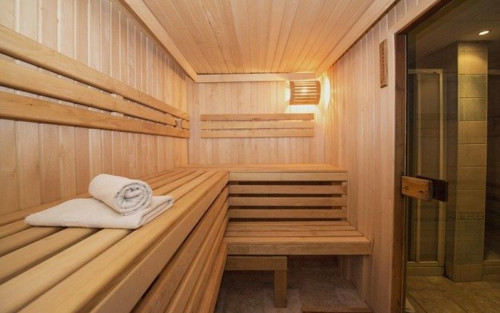




Alternative to Meds Center
Treatment Focus
This center treats substance use disorders and mental health conditions. You'll receive individualized care catered to your unique situation and diagnosis, learn practical skills for recovery, and make new connections in a restorative environment.
Primary Level of Care
Offering intensive care with 24/7 monitoring, residential treatment is typically 30 days and can cover multiple levels of care. Length can range from 14 to 90 days typically.
Claimed
Recovery.com has connected directly with this treatment provider to validate the information in their profile.
Treatment Focus
This center treats substance use disorders and mental health conditions. You'll receive individualized care catered to your unique situation and diagnosis, learn practical skills for recovery, and make new connections in a restorative environment.
Primary Level of Care
Offering intensive care with 24/7 monitoring, residential treatment is typically 30 days and can cover multiple levels of care. Length can range from 14 to 90 days typically.
Provider's Policy
Working through your insurance coverage can be confusing and stressful, especially when dealing with detox and holistic-based treatment protocols. Not all PPO insurance allows for the same types of coverage, treatment allowables, and percentages of payment for care. Allow us to help you with the process so that the time spent behind our doors is as it is meant to be – seamless, uninterrupted, productive and positive.
Alternative to Meds Center
Alternative to Meds Center
About Alternative to Meds Center
Alternative to Meds provides personalized, alternative routes to recovery and helps clients taper off psychiatric medications. They provide medication tapering for antidepressants, antipsychotics, and benzodiazepines with holistic methods for a medication-free recovery. Alternative to Meds treats addiction and mental health disorders like depression, anxiety, trauma, post traumatic stress (PTSD), ADHD, bipolar, and more. They cater to executives with flexible technology policies and treatment methods suited to their unique preferences and needs.
An Alternative Path to Recovery
Alternative to Meds uses holistic and evidence-based treatments to help ease medication withdrawal, treat mental health conditions, and promote overall wellness. They run various health tests to address the medical and physical causes of poor mental health and restore optimal brain chemistry. They offer holistic psychiatry and provide cognitive behavioral therapy (CBT), eye movement desensitization and reprocessing (EMDR), marriage and family counseling, validation therapy, self-regulation practices, and various alternative therapies. These include art therapy, existential therapy, and expressive arts.
Plethora of Integrated Services for Individualized Healing
Alternative to Meds incorporates naturopathic methods to promote healing of the mind, body, and spirit. Some of their offerings include:
•Neurotoxin removal
•Lab testing
•Orthomolecular medicine
•Environmental medicine
•Colon hydrotherapy
•Massages
•Qi Gong
•Equine therapy
•Energy medicine techniques like Reiki
A Restorative Setting
Alternative to Meds promotes exercise, mindfulness practices, and offers an organic diet to address underlying health imbalances. They believe that aesthetics are one of the highest forms of healing and provide artistic, comfortable spaces at their facility. They have 18 beds, with private and semi-private bedrooms. All have access to the outdoors. An outdoor lounge and hot tub, on-site spa treatments, and frequent nature outings bring clients outside and into wellness. Alternative to Meds is Joint Commission accredited and accepts a variety of insurance providers.

Highlights from the Center
Highlights
These highlights are provided by and paid for by the center.
Therapeutic Location
Customized Treatment Plans
Holistic Approach
Wellness Emphasis
Center Overview
Treatment Focus
This center treats substance use disorders and mental health conditions. You'll receive individualized care catered to your unique situation and diagnosis, learn practical skills for recovery, and make new connections in a restorative environment.
Joint Commission Accredited
The Joint Commission accreditation is a voluntary, objective process that evaluates and accredits healthcare organizations (like treatment centers) based on performance standards designed to improve quality and safety for patients. To be accredited means the treatment center has been found to meet the Commission's standards for quality and safety in patient care.
Insurance Accepted
Cash Pay Rates
Estimated Cash Pay Rate
Center pricing can vary based on program and length of stay. Contact the center for more information. Recovery.com strives for price transparency so you can make an informed decision.
Luxury rehab centers offer a unique blend of luxurious amenities and high-quality treatment. From private suites to gourmet dining, personal trainers to spa treatments, these facilities provide a high level of comfort and discretion.

Meet Your Care Team

Dr. Ergi O. Gumusaneli
Psychiatrist
MD

Carley McCarthy
Medical Director
PMHNP

Yolanda Baugh
PRN Medical Director
PMHNP-BC

Dr. Daniela Hutyrova
Director of Naturopathic Medicine
NMD
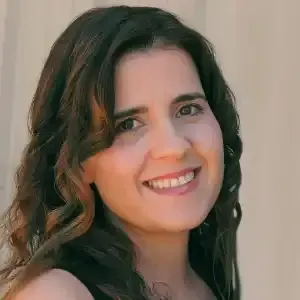
Beth Avakian
Naturopathic Doctor
RN, BSN, NMD
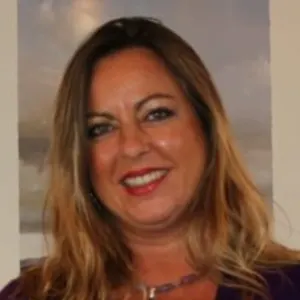
Kimberli Galloway
Director of Nursing
RN, BSN, BA
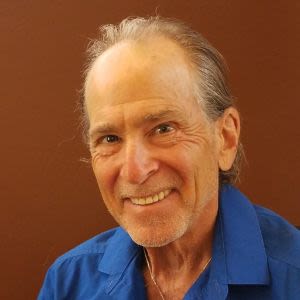
Glenn Marks
Registered Nurse
RN
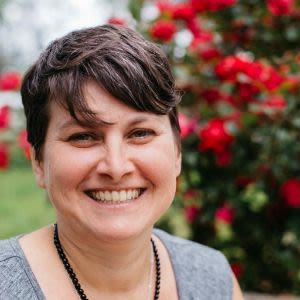
Kassie Morgan
Acupuncturist
LAc
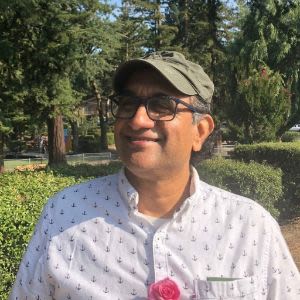
Nayeem Lokhandwala
Clinical Director
LMFT

Libby Smith
Therapist
PhD

Hannah Gravelle
Care Manager
MSc
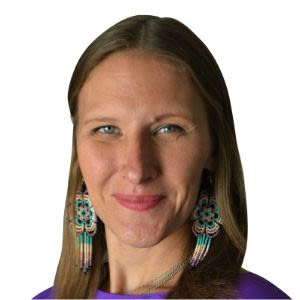
Allison K. Depuydt
Care Manager, Therapist, and Art Therapy Faciltator




Levels of Care






Your Care Options
Specializations
Alcohol
Using alcohol as a coping mechanism, or drinking excessively throughout the week, signals an alcohol use disorder.
Co-Occurring Disorders
A person with multiple mental health diagnoses, such as addiction and depression, has co-occurring disorders also called dual diagnosis.
Equine Therapy
Guided interactions with trained horses, their handler, and a therapist can help patients improve their self-esteem, trust, empathy, and social skills.
Executives
Executive treatment programs typically directly support the needs of people who manage businesses and may provide flexible schedules and office space to allow work during treatment.
Holistic
A non-medicinal, wellness-focused approach that aims to align the mind, body, and spirit for deep and lasting healing.
Residential
In a residential rehab program, patients live onsite, with access to daily treatment and 24-hour care. An average stay is 30-90 days.
Who We Treat
Men and Women
Men and women attend treatment for addiction in a co-ed setting, going to therapy groups together to share experiences, struggles, and successes.
Approaches
Evidence-Based
A combination of scientifically rooted therapies and treatments make up evidence-based care, defined by their measured and proven results.
Holistic
A non-medicinal, wellness-focused approach that aims to align the mind, body, and spirit for deep and lasting healing.
Naturopathy
Natural remedies like nutrition management and acupuncture help relieve withdrawal symptoms and help patients maintain sobriety without medications.
Wellness
Wellness philosophies focus on the physical, mental, and spiritual wellness of each patient, helping them restore purpose with natural remedies.
Therapies
1-on-1 Counseling
Patient and therapist meet 1-on-1 to work through difficult emotions and behavioral challenges in a personal, private setting.
Meditation & Mindfulness
A practiced state of mind that brings patients to the present. It allows them to become fully aware of themselves, their feelings, and the present moment.
Mindfulness Therapy
This ancient practice can be mental, emotional, and even spiritual. In meditation, you focus your attention on the present moment without judgement.
Animal Therapy
Animals can inspire trust and self-worth. In this experiential therapy, guided interactions are used to improve social skills and emotion regulation.
Art Therapy
Visual art invites patients to examine the emotions within their work, focusing on the process of creativity and its gentle therapeutic power.
Experiential Therapy
With this approach, patients heal by doing. Therapists help patients process difficult emotions to speak, using guided activities like art or dance.
Expressive Arts
Creative processes like art, writing, or dance use inner creative desires to help boost confidence, emotional growth, and initiate change.
Conditions We Treat
Schizophrenia
Schizophrenia is a serious mental health condition that causes hallucinations, delusions, and disordered thinking.
ADHD, ADD
ADHD is a common mental health condition caused by dopamine imbalance. Common symptoms include inattention, hyperactivitiy, and impulsivity.
Anxiety
Anxiety is a common mental health condition that can include excessive worry, panic attacks, physical tension, and increased blood pressure.
Bipolar
This mental health condition is characterized by extreme mood swings between depression, mania, and remission.
Depression
Symptoms of depression may include fatigue, a sense of numbness, and loss of interest in activities. This condition can range from mild to severe.
Eating Disorders
An eating disorder is a long-term pattern of unhealthy behavior relating to food. Most people with eating disorders have a distorted self-image.
Obsessive Compulsive Disorder (OCD)
OCD is characterized by intrusive and distressing thoughts that drive repetitive behaviors. This pattern disrupts daily life and relationships.
Post Traumatic Stress Disorder
PTSD is a long-term mental health issue caused by a disturbing event or events. Symptoms include anxiety, dissociation, flashbacks, and intrusive thoughts.
Trauma
Some traumatic events are so disturbing that they cause long-term mental health problems. Those ongoing issues can also be referred to as "trauma."
Substances We Treat
Benzodiazepines
Benzodiazepines are prescribed to treat anxiety and sleep issues. They are highly habit forming, and their abuse can cause mood changes and poor judgement.
Co-Occurring Disorders
A person with multiple mental health diagnoses, such as addiction and depression, has co-occurring disorders also called dual diagnosis.
Drug Addiction
Drug addiction is the excessive and repetitive use of substances, despite harmful consequences to a person's life, health, and relationships.
Opioids
Opioids produce pain-relief and euphoria, which can lead to addiction. This class of drugs includes prescribed medication and the illegal drug heroin.
Prescription Drugs
It's possible to abuse any drug, even prescribed ones. If you crave a medication, or regularly take it more than directed, you may have an addiction.
Languages
Care Designed for Your Needs
Personal Amenities
Amenities
Special Considerations
Healthy Meals are provided
Great food meets great treatment, with providers serving healthy meals to restore nutrition, wellbeing, and health.
Activities
Yoga
Yoga is both a physical and spiritual practice. It includes a flow of movement, breathing techniques, and meditation.
Off-Site Activities
Off-Site Amenities
What people are saying
Treatment
3.9
Accommodations
4.3
Food & Nutrition
4.6
Value
4.4
Suzanne P
Treatment in 2024 • (60 days) • Reviewed 10/09/24
Loved One of a Former Client
•Florida
Anonymous
Reviewed 05/01/20
Review from Rehabs.com
smw
Reviewed 01/04/20
Review from Rehabs.com
Natasha
Reviewed 06/05/18
Review from Rehabs.com
Didi
Treatment in 2015 • (180+ days) • Reviewed 01/13/25
Loved One of a Former Client






